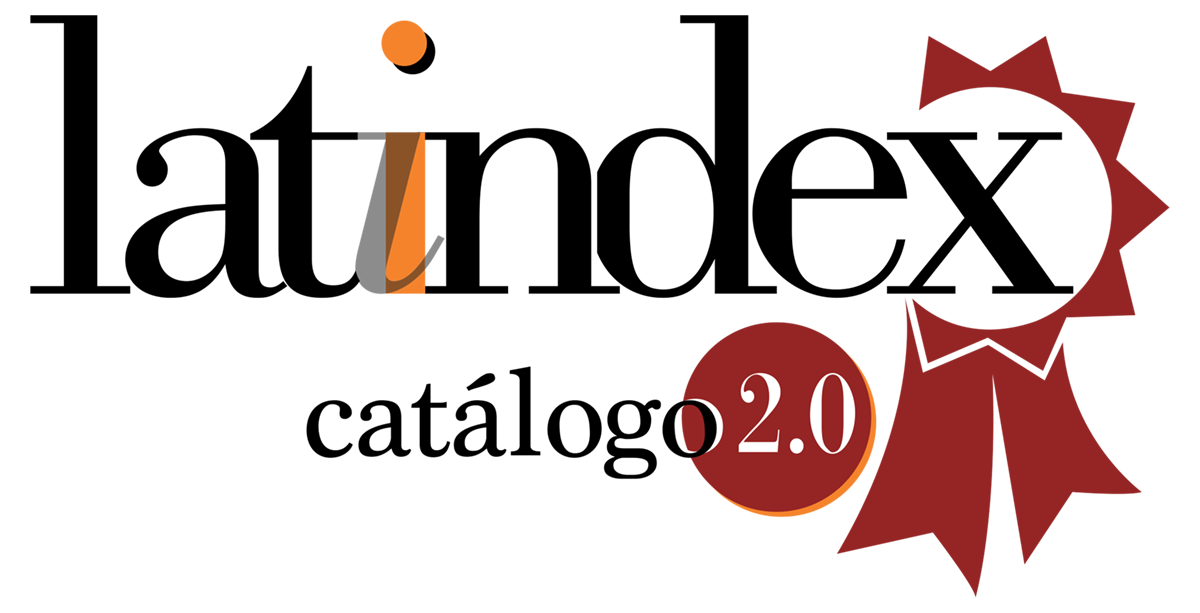Estrategias cognitivas de regulación emocional y síntomas de depresión en estudiantes universitarios: diferencias por género y tipo de carrera. Resultados preliminares
DOI:
https://doi.org/10.61144/0718-9397.2017.147Resumen
Existen diferencias de género en la frecuencia de uso de estrategias cognitivas de regulación emocional (EC-RE). Estudios recientes sugieren que el tipo de ocupación que las personas desempeñan posee influencia sobre su estilo cognitivo más allá de su género, por lo que es posible que las diferencias en las EC-RE sean mejor explicadas por el tipo de carrera que por el género. El objetivo de este trabajo fue analizar si el efecto del género sobre la frecuencia de uso de EC-RE se modifica cuando se introduce el tipo de carrera como factor explicativo y analizar si las relaciones de estas estrategias con los síntomas de depresión son similares en ambos tipos de carrera. Se evaluó a un grupo de varones y mujeres que cursaban Psicología e Ingeniería (n=40) en las variables mencionadas. Los resultados indicaron que el tipo de carrera mostró una tendencia a resultar un factor de influencia de mayor capacidad explicativa que el género para la EC-RE rumiación, en el sentido de que los estudiantes de Psicología informaron mayor uso de la rumiación que los de Ingeniería. En ambos grupos de estudiantes, el sentido de asociación entre la rumiación y la depresión fue similar (positivo) aunque no significativo. La rumiación y la distracción resultaron predictores de los síntomas de depresión para toda la muestra.
Citas
Aldao, A., & Nolen-Hoeksema, S. (2010). Specificity of cognitive emotion regulation strategies: a transdiagnostic examination. Behaviour Research and Therapy, 48(10), 974–83.
Arrivillaga-Quintero, M., Cortés-García, C., Goicochea-Jimenez, V. L., & Lozano-Ortiz, T. M. (2004). Caracterización de la depresión en jóvenes universitarios. Pontificia Universidad Javeriana Cali, 3(1), 17–25.
Barrett, L., Lane, R. D., Sechrest, L. & Schwartz, G.E. (2000). Sex differences in emotional awareness. Personality and Social Psycholigal Bulletin, 26, 1027-35.
Beck, A. T., Steer, R. A. & Brown, G. K. (2006). BDIII, Inventario de Depresión de Beck (2ª ed.). Buenos Aires: Paidós.
Brenlla, M. E. & Rodríguez, C. M. (2006). Adaptación argentina del Inventario de Depresión de Beck (BDIII). Buenos Aires: Paidós.
Brody, L.R., Hall, J.A. (1993). Gender and emotion in context. En M. Lewis, J. M. Haviland y L. F. Barrett (Eds.), Handbook of Emotions (pp. 89–121). New York: Guilford
Ciarrochi, J., Hynes, K. & Crittenden, N. (2005). Can men do better if they try harder: sex and motivational effects on emotional awareness. Cognition & Emotion, 19, 133–41.
Dávila-Figueras, A., Ruiz-Celis, R., Moncada-Arroyo, L., & Gallardo-Rayo, I. (2011). Niveles de ansiedad, depresión y percepción de apoyo social en estudiantes de Odontología de la Universidad de Chile. Revista de Psicología, 20, 147–172.
Garnefski, N., & Kraaij, V. (2006). Relationships between cognitive emotion regulation strategies and depressive symptoms: A comparative study of five specific samples. Personality and Individual Differences, 40(8), 1659–1669.
Garnefski, N., Kraaij, V., & Spinhoven, Ph. (2001). Negative Life events, cognitive emotion regulation and emotional problems. Personality and Individual Differences, 30, 1311–1327.
Garnefski, N., Rieffe, C., Jellesma, F., Terwogt, M. M., & Kraaij, V. (2007). Cognitive emotion regulation strategies and emotional problems in 9 - 11-year-old children: the development of an instrument. European Child & Adolescent Psychiatry, 16(1), 1–9.
Garnefski, N., Teerds, J., Kraaij, V., Legerstee, J., van den Kommer, T., & Vandenkommer, T. (2004). Cognitive emotion regulation strategies and depressive symptoms: differences between males and females. Personality and Individual Differences, 36(2), 267–276.
Garnefski, N., Van Den Kommer, T., Kraaij, V., Teerds, J., Legerstee, J., & Onstein, E. (2002). The relationship between cognitive emotion regulation strategies and emotional problems: comparison between a clinical and a non-clinical sample. European Journal of Personality, 16(5), 403–420.
Gohm CL. (2003). Mood regulation and emotional intelligence: individual differences. Journal of Personality and Social Psychology, 84, 594–607.
Govier, E. & Bobby, P. (1994). Sex and occupation as markers for task performance in a dichotic measure of brain asymmetry. International Journal of Psychophysiology, 18, 179-186.
Govier, E. & Boden, M. (1997). Occupation and dichotic listening performance. Laterality, 2, 27-32.
Govier, E., & Feldman, J. (1999). Occupational choice and patterns of cognitive abilities. British Journal of Psychology, 90(1), 99–108.
Gross, J. J. (1999). Emotion regulation: past, present, future. Cognition and Emotion, 13, 551–573.
Gross, J. J. (2014). Emotion Regulation: Conceptual and Empirical Foundations. In J. J. Gross (Ed.), Handbook of Emotion Regulation. (Second Edition, pp. 3–22). New York - London: The Guilford Press.
Gross, J. J., & Muñoz, R. F. (1995). Emotion regulation and mental health. Clinical Psychology: Science and Practice, 2, 151–164.
Gutiérrez-Rodas, J. A., Montoya-Vélez, L. P., Toro-Isaza, B. E., Briñón-
Zapata, M. A., Rosas-Restrepo, E., & Salazar-Quintero, L. E. (2010). Depresión en estudiantes universitarios y su asociación con el estrés académico. Revista CES Medicina, 24(1), 7–17.
Hines, M. (1990). Gonadal hormones and human cognitive development. En J. Balthazart (Ed.), Hormones, brain and behaviour in vertebrates. Sexual differentiation neuroanatomical aspects, neurotransmitters and neuropeptides, (pp. 53-54). Basel : Karger.
Hollingshead, A.B. (2011) Four Factor Index of Social Status. Yale Journal of Sociology,8, 2-52.
Hyde, J.S., Mezulis, A.H., Abramson, L.Y. (2008). The ABCs of depression: integrating affective, biological, and cognitive models to explain the emergence of the gender difference in depression. Psychological Review, 115:291– 313
Koole, S. L. (2010). The psychology of emotion regulation: An integrative review. In J. De Houwer & D. Hermans (Eds.), Cognition and emotion: Reviews of current research and theories (pp. 128-167). New York, NY: Psychology Press.
Linn, M. C. & Petersen, A. C. (1986). A meta-analysis of gender diåerences in spatial ability : Implications for mathematics and science achievement. En J. S. Hyde y M. C. Linn (Eds.), The psychology of gender : Advances through meta-analysis . Baltimore, MD: Johns Hopkins
Maciel, B., Pinto, D. C., Filgueiras, A., Francisco, M., Juruena, P., &
Stingel, A. M. (2013). Diferenças de gênero entre universitários no reconhecimento de expressões faciais emocionais. Avances en Psicologia Latinoamericana, 31, 200–222.
Manelic, R. & Ortega, H. (1995). La depresión en los estudiantes
universitarios de la Escuela Nacional de Estudios Profesionales Plantel Aragón. Salud Mental; 18(2);31- 34.
Martin, R., & Dahlen, E. (2005). Cognitive emotion regulation in the prediction of depression, anxiety, stress, and anger. Personality and Individual Differences, 39(7), 1249–1260.
Medrano, L. A., Moretti, L., & Ortiz, Á. (2013). Validación del Cuestionario de Regulación Emocional Cognitiva en Universitarios de Córdoba , Argentina. PSYKHE, 22, 83–96.
Nolen-Hoeksema, S. (2012). Emotion regulation and psychopathology: the role of gender. Annual Review of Clinical Psychology, 8, 161–87.
Nolen-Hoeksema, S., & Aldao, A. (2011). Gender and age differences in emotion regulation strategies and their relationship to depressive symptoms. Personality and Individual Differences, 51(6), 704–708.
Pascual, L., Galperín, C. & Bornstein, M. (1993) La medición del nivel socioeconómico y la psicología evolutiva: el caso argentino. Revista Interamericana de Psicología, 27(1), 59-74.
Roe, R. A. (2002). What Makes a Competent Psychologist? European Psychologist, 7(3), 192–202.
Romo-González, T., Ehrensweig, Y., Sánchez-Gracida, O. D., Enríquez-Hernández, C. B., López-Mora, G., Martínez, A. J., & Larralde, C. (2014). Promotion of individual happiness and well-being of students by a positive education intervention. Journal of Behavior, Health & Social Issues, 5(2), 79–102.
Sáinz, M., López-Sáez, M., & Lisbona, A. (2004). Expectativas de rol profesional de mujeres estudiantes de carreras típicamente femeninas o masculinas. Acción Psicológica, 3(2), 111–123.
Sautú, R. (1989). Teoría y técnica en la medición del status ocupacional: Escalas objetivas de Prestigio (Documento de Trabajo). Buenos Aires: Universidad de Buenos Aires. Instituto de Ciencias Sociales.
Schroevers, M., Kraaij, V., & Garnefski, N. (2007). Goal disturbance, cognitive coping strategies, and psychological adjustment to different types of stressful life event. Personality and Individual Differences, 43(2), 413–423.
Tamres, L.K., Janicki, D. & Helgeson, V.S. (2002). Sex differences in coping behavior: a meta-analytic review and an examination of relative coping. Personality and Social Psychology Review, 6, 2-30.
Thompson, R. A. (1991). Emotional regulation and emotional development. Educational Psychology Review, 3, 269–307.
Thompson, R. A. (1994). Emotional regulation: a theme in search for definition. Monographs of the Society for Research in Child Development, 59, 25–52.
Cómo citar
Licencia
Los autores/as conservarán sus derechos de autor y garantizarán a la revista el derecho de primera publicación de su obra, el cual estará simultáneamente sujeto a la Licencia de reconocimiento de Creative Commons (CC BY-NC-ND) 4.0 que permite a terceros compartir la obra siempre que se indique su autor y se comparta el documento, en formato pdf y con la paginación del número original, a través del que este ha sido publicado por la revista. Siguiendo las definiciones establecidas por la licencia (ver: https://creativecommons.org/licenses/by-nc-nd/4.0/deed.es) los números de la revistas seguirán los siguientes términos:
-
Atribución — Usted debe dar crédito de manera adecuada, brindar un enlace a la licencia, e indicar si se han realizado cambios. Puede hacerlo en cualquier forma razonable, pero no de forma tal que sugiera que usted o su uso tienen el apoyo de la licenciante.
-
No Comercial — Usted no puede hacer uso del material con propósitos comerciales.
-
Sin Derivadas — Si remezcla, transforma o crea a partir del material, no podrá distribuir el material modificado.
- No hay restricciones adicionales — No puede aplicar términos legales ni medidas tecnológicas que restrinjan legalmente a otras a hacer cualquier uso permitido por la licencia.












